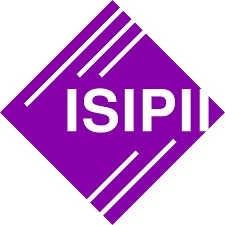Misogyny on social media platform X: Discourse on the case of sexual harassment against a woman in a mosque
Abstract
Backgruond: The X social media account @detikcom posted a news report about a sexual harassment case experienced by a woman at Al-Ikhsan Mosque in Gorontalo. The post sparked various responses from netizens, ranging from support for the victim to comments blaming women.
Purpose: This study aims to understand how misogynistic discourse is formed and develops in digital spaces, particularly on X, when discussing cases of sexual harassment in public domains.
Methods: This research adopts a qualitative approach using the netnographic method. Data were collected from netizen comments on @detikcom’s X post published on March 1, 2024, as well as interviews with a gender expert and netizens who commented.
Results: In this study, these comments were analyzed through the lens of feminist standpoint theory to uncover patriarchal perspectives reflected in responses toward female victims to highlight the social positioning of women as subjects often subordinated within societal structures. These comments not only shift the focus from the perpetrators, but also have implications for strengthening social norms that restrict women’s freedom to practice their religion and participate in the public sphere. Nonetheless, the study also found comments expressing empathy and defending the victim, rejecting misogynistic narratives. This research demonstrates that social media serves as a critical arena for reinforcing and challenging patriarchal values. The findings underscore the importance of critical awareness in addressing gender-based violence discourse online, as well as the need for educational interventions and platform policies that foster safer, more equitable spaces for victims.
Keywords
Full Text:
PDFReferences
Aqmarina, D., & Vera, N. (2023). Transjakarta dan pelecehan seksual: Studi netnografi di media sosial Twitter. Jurnal Mutakallimin: Jurnal Ilmu Komunikasi, 6(2). https://doi.org/10.31602/jm.v6i2.11973
Arsawati, N. N., & Bunga, D. (2021). Misogyny as vioelence in gender perspective. International Journal of Business, Economics and Social Development, 3(1), 19-27. https://journal.rescollacomm.com/index.php/ijbesd/index
Fenton, A., Ahmed, W., Hardey, M., Boardman, R., & Kavanagh, E. (2024). Women’s football subculture of misogyny: The escalation to online gender-based violence. European Sport Management Quarterly, 24(6), 1215-1237. https://doi.org/10.1080/16184742.2023.2270566
Gurung, L. (2021). Feminist standpoint theory: Conceptualization and utility. Dhaulagiri Journal of Sociology and Anthropology, 14, 106-115. https://doi.org/10.3126/dsaj.v14i0.27357
Hamid, H. B. (2021). Exploring victim blaming attitudes in cases of rape and sexual violence: The relationship with patriarchy. Malaysian Journal of Social Sciences and Humanities (MJSSH), 6(11), 273-284. https://doi.org/10.47405/mjssh.v6i11.1147
KOMNAS Perempuan. (2024). Siaran pers komnas perempuan tentang peluncuran catatan tahunan kasus kekerasan terhadap perempuan tahun 2023.https://komnasperempuan.go.id/siaran-pers-detail/siaran-pers-komnas-perempuan-tentang-peluncuran-catatan-tahunan-kasus-kekerasan-terhadap-perempuan-tahun-2023
Kozinets, R. V. (2015). Netnography: Redefined. London: Sage.
Kozinets, R. V. (2023). Immersive netnography: A novel method for service experience research in virtual reality, augmented reality and metaverse contexts. Journal of Service Management, 100-125. https://doi.org/10.1108/JOSM-12-2021-0481
Lismini, R. (2023). Netnographic study of online gender-based violence (KGBO) on Twitter. Jurnal Syntax Admiration, 4(5).https://doi.org/10.46799/jsa.v4i5.588
Longini, J. L. (2023). Twitter as limited digital rhetorical forum - The reproductive rights discourse online. Comparative Woman, 2(1).https://doi.org/10.31390/comparativewoman.2.1.08
Manne, K. (2017). Down girl: The logic of misogyny. Harlow: Penguin Books.
Miranda, S. L. (2023). Analyzing hate speech against women on Instagram. Open Information Science, 7(1), 20220161.https://doi.org/10.1515/opis-2022-0161
Nawir, I. (2024). Kasus pelecehan wanita di masjid Gorontalo: Korban trauma sampai tidak bisa tidur. https://gorontalo.tribunnews.com/2024/02/27/kasus-pelecehan-wanita-di-masjid-gorontalo-korban-trauma-sampai-tidak-bisa-tidur?page=all
Pratama, F. R., Komariah, N., & Rodiah, S. (2022). Hubungan antara kemampuan literasi digital dengan pencegahan berita hoaks di kalangan mahasiswa. Informatio: Journal of Library and Information Science, 2(3), 165-184. https://doi.org/10.24198/inf.v
Priatmojo, D. A. (2022). Literasi informasi remaja pengguna perpustakaan di era pandemi Covid-19. Informatio: Journal of Library and Information Science, 2(2), 137-150. https://doi.org/10.24198/inf.v2i2.417562i3.43792
Reyes-Sosa, H., Martínez-Cueva, S., & Idoiaga Mondragón, N. (2022). Rape culture, revictimization, and social representations: Images and discourses on sexual and violent crimes in the digital sphere in Mexico. Journal of Interpersonal Violence, 38(1-2), 847-871. https://doi.org/10.1177/08862605221084747
Sanders, T. (2019). Tania Levey, sexual harassment online. Shaming and silencing women in the digital age 22. Sexualities, 22(7-8), 1345-1347. https://doi.org/10.1177/1363460718811225
Santosa, H. P., Ayun, P. Q., & Lukmantoro, T. (2022). Misogynistic in digital media: Hate speech narratives towards beauty influencers. Interaksi: Jurnal Ilmu Komunikasi, 11(2), 166-177.https://doi.org/10.14710/interaksi.11.2.166-174
Spaccatini, F. P., Pagliaro, S., & Giovanneli, I. (2023). Victim blaming 2.0: blaming sexualized victims of online harassment lowers bystanders’ helping intentions. Current Psychology, 42(22), 19054-19064.https://doi.org/10.1007/s12144-022-02884-8
Sugiyono. (2017). Metode penelitian kualitatif: Untuk penelitian yang bersifat eksploratif, interpretif, interaktif, dan konstruktif. Bandung: Alfabeta.
Sugiyono. (2019). Metode penelitian kuantitatif, kualitatif, dan R&D. Bandung: Alfabeta.
Yuliawati, S. (2018). Perempuan atau wanita? Perbandingan berbasis korpus tentang leksikon berbias gender. Paradigma: Jurnal Kajian Budaya, 8(1), 53-70. https://doi.org/10.17510/paradigma.v8i1.227
DOI: https://doi.org/10.24198/inf.v5i2.61751
Refbacks
- There are currently no refbacks.
Copyright (c) 2025 Kirana Prawitasari, Eni Maryani, Kismiyati El Karimah

This work is licensed under a Creative Commons Attribution-ShareAlike 4.0 International License.
Informatio Indexed by:
Editorial Office :
Library and Information Science Study Program, Building 3 Floor 2, Faculty of Communication Science, Universitas Padjadjaran
Jl. Raya Bandung Sumedang Km. 21 Jatinangor, Sumedang 45363
Principal Contact :
Phone : 08122184219
Email : rully.khairul@unpad.ac.id

 ,
,




2.png)


